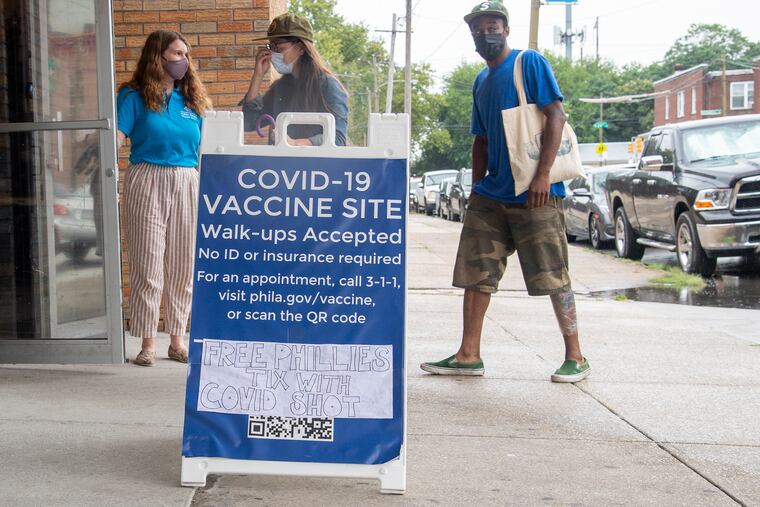Hesitant to get the COVID-19 vaccine? Your primary-care doctor can help. | Expert Opinion
What I hope for most is that patients will view me, and other clinicians, as partners in decision making. I am there to listen and understand first, not to judge.

Three patients walk into a doctor’s office.
The doctor recommends the COVID-19 vaccine.
The first patient, a 40-year-old man, wants no parts of the vaccine.
“I’m not putting that into my body. It’s experimental and I’m not going to be a guinea pig,” he said, entirely unimpressed by the recent full approval of the Pfizer vaccine by the U.S. Food and Drug Administration.
The second, a 63-year-old woman, is considering vaccination, but feels unsure: “I’m still a little nervous about it. It came out too fast … do they really know it’s safe?”
The third, a 57-year-old man, can’t wait for a booster shot.
“Doc, as soon as you know where I can get the booster, please call me,” he said. “No matter what, I’ll stop what I’m doing and go get it. Same with the fourth or fifth, if that’s what the experts end up recommending.”
I wish this was a joke that had a funny punchline, but it is not. These were the first three patients I saw one morning last week, a sampling of the disparate views on vaccination that I hear every day.
It can be a struggle to preserve a feeling of caring and concern in the face of patients’ rejection of a public health imperative. I strive to replace frustration with wonder about what may have happened to give rise to a patient’s reluctance to get vaccinated. Once patients feel heard and understood, they may be more receptive to my advice. This way, I can be an advocate for the safety of my patients and our community, and still feel an empathic connection. In other words, I can feel like a doctor.
The first patient had recently lost a close friend to cancer, after her disease did not respond to some newer chemotherapy drugs. This stoked his fear about any new medical intervention. We spent some time talking about how vaccines are developed and thoroughly tested.
Drug safety was also top of mind for the second patient. I asked about her understanding of how the vaccine was developed so quickly, and was able to reassure her about some areas of confusion.
The third patient only needed to know if we would be administering the booster vaccine in our office, or if he would need to return to his previous vaccination site.
What I hope for most is that patients will view me, and other clinicians, as partners in decision making. I am there to listen and understand first, not to judge — which may not be the case when discussing vaccination choices with friends, family, or coworkers.
Further, the amount of information out there to wade through is daunting, even for medical professionals. I can only imagine how overwhelming it must feel for people without a medical background.
If you are feeling uncertain about COVID-19 vaccination, your primary-care clinician can help you process the deluge of ever-changing details, so you can make a well-informed decision.
No matter where you land, preserving and nurturing a trusting relationship between doctor and patient is always paramount. After all, even if someone decides against my advice to get vaccinated, they still showed up for their visit, and I want them to come back so we can continue the conversation. And, of course, there are plenty of other health challenges to tend to.
Jeffrey Millstein is a primary-care physician and medical director for patient experience-regional practices at Penn Medicine.